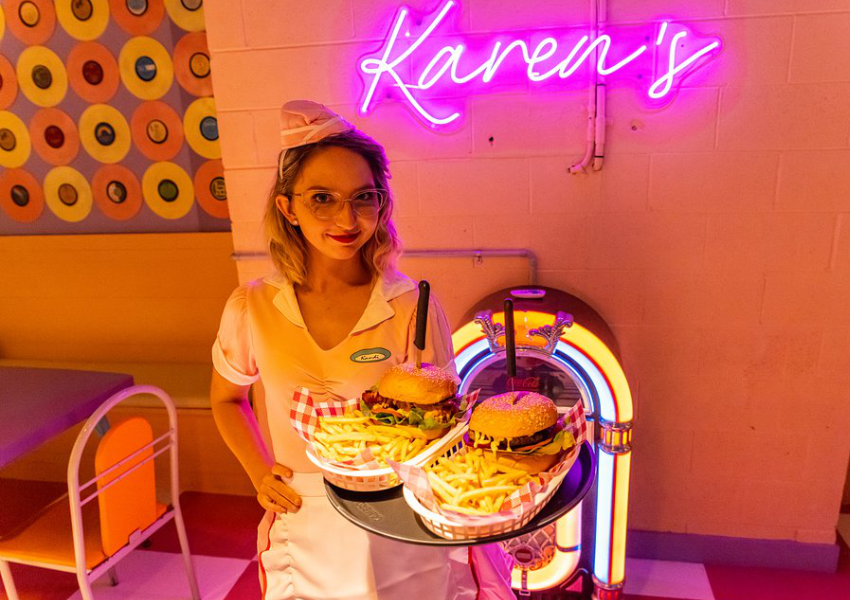
The Honourable Omnivore
Jonathan Safran Foer, author of Eating Animals (RRP $32.95) came to his vegetarianism through the process of deciding “what story to tell” his child. I agree that what we eat matters, but if you fancy yourself omnivorous for a reason, there must be other ways to honour what you eat. Like Foer, I am horrified by intensive farming practices. Foer cites KFC as “arguably the company that has increased the sum total of suffering in the world more than any other in history”. I’ve already scratched them from my list, but who has the time to go company by company throughout their diverse diet?
It’d be great to keep all the farms you use under a watchful eye, but most of us don’t have the time, means or inclination to do this. If I can’t use a farmer who sells direct, like the caring Tim Woods of Wellington Farm Lamb , I pay someone else to care. You won’t see me buying meat from the supermarkets; instead I use small providores like Grant Hilliard from Feather and Bone and Tim Elwin from Urban Food Market. I use them to guarantee the path my meat takes from the paddock to my plate.
Divorce yourself of the idea once and for all that cheap meat is good meat. If you need to reduce your bill, simply eat less meat. Your extra dollars pay for the additional room the animals have on non-intensive farms where they are free to roam and behave like pigs, chickens, cows and sheep should. It pays for extra time on pasture to grow and develop naturally, avoiding them being stuffed with grain and rushed to market. It guarantees they’re not living nose-to-nose in an intensively farmed situation that requires antibiotics to prevent the spread of disease. It pays for them to be killed humanely. It also pays for sustainable farming, instead of our current wasteful system where huge amounts of grain are converted into relatively small amounts of protein.
The ethical omnivore also faces a dilemma at restaurants. According to Tim Elwin from Urban Food Market, “only around 5-10% of Australian restaurants proactively use sustainable produce.” You can look for restaurants that name the farm their meat comes from on the menu, deciding for yourself whether that producer suits your ethics; or you can trust certain chefs to do that for you.
Craig Macindoe from Mumu Grill Sydney’s only sustainable steakhouse, decides on his produce by getting “the story from the supplier or from the farmer directly” before testing it for flavour. His favourite producers are “Rob Lennon from Gundooee Organic Wagyu and Grahame Strong from Arcadia Saltbush Lamb.” You can try the wonderful Salt Bush Lamb done two ways on his current menu.
James Viles from Doltone House has devised a 100-mile menu for Doltone House Darling Island Wharf, and uses organic produce for Bar Biaggio. Stuart Knox from Fix St James doesn’t purchase “specifically for sustainability, we purchase based on quality of flavour. However, in my experience sustainability and quality produce often goes hand in hand.” One challenge he faces though is “making the general public aware that with that extra flavour quality there is an increased price, when there is a restaurant around the corner selling a similar dish with [a] lower cost” because they use intensively farmed meat. Tim Elwin agrees: “At risk of not being able to pay my mortgage, I have also set a target of the end of the year to wipe out all our non sustainable produce from our product list (currently only 20% is conventionally produced but is a massive seller) as I and other suppliers play a major role in this chain.”
While Foer concludes that the choice to eat animals is not for him, he grants that some people will find it acceptable to eat meat raised on farms that give the animals decent lives. I applaud those people who try to negotiate this ethical minefield, because as Tim points out, “Farm and City have never been further apart than they are today… predominately due to the meat industry not wanting consumers to know how their meat is produced!” It’s definitely hard now to live as an honourable omnivore, but with men like Grant Hilliard, Tim Elwin and Craig Macindoe on the case, and consumers demanding it, it’s bound to get easier!









